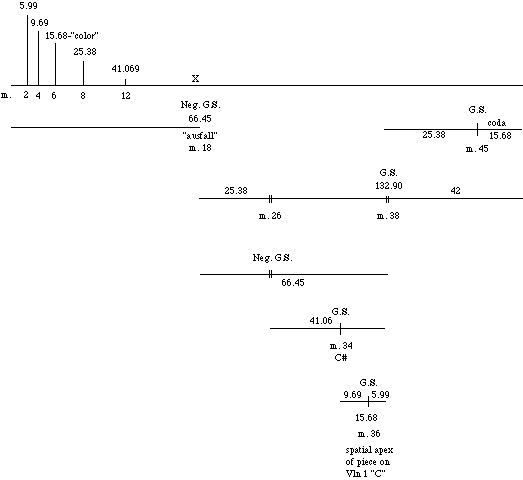Positive
and negative golden sections generally articulate important structural divisions
in the piece. Note series of positive golden sections which begin at
overall work’s "negative" golden section at m. 18. The section where
the time unit changes (m. 26-38) begins at a negative golden section point
and ends at a different positive golden section point. This is easier
to look at than to write about it, so take your time and try to understand
this diagram, because what Webern does is rather ingenious. I was not
surprised to learn that the segment which begins at the negative golden section
point, is at the "deficiency," or "ausfall," which is the structural mid-way
point for the Row Structure (see Appendix #1 in my paper). Webern’s
use of retrograde in the work reflects his use of "retrograde" golden
sections. Nothing outstanding occurs at the work’s positive golden
section, by the way.
|

